#economic injustice
Text

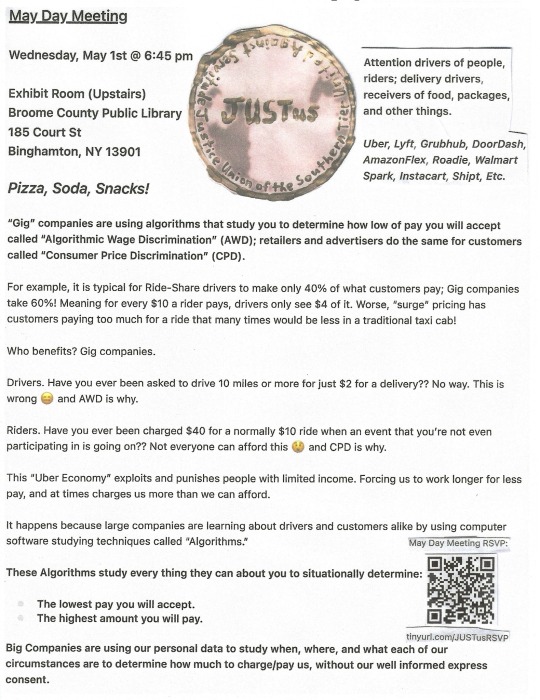

#lyft#uber#economic justice#social justice#delivery drivers#union#fair pay#uber eats#amazon flex#doordash#exploitation#servitude#economic injustice#social injustice#JUSTus#gig workers#binghamton#southern tier#607
0 notes
Text
The situation was doubly dangerous because we thought we were, finally, communicating. We were not, of course, because even well-disposed white men tended to be turned off and affronted if black men told them truths that offended their prejudices. For years it was my embarrassing task to sit in on meetings of whites and blacks, to serve one ridiculous but necessary function: I knew, and every black man there knew, that I, as a man now white once again, could say the things that needed saying but would be rejected if black men said them.
In city after city we had these meetings to attempt to communicate, and in each one my function was to say those things that the black man knew much better than I could hope to know, but could not communicate as yet for the simple reason that white men could not tolerate hearing them from a black man’s mouth. Dick Gregory and I once made an experiment with this. We agreed to say essentially the same things to a lecture audience at the same school. I got an ovation for “talking straight.” He got uncomfortable silence for saying the same things.
Almost constantly and almost everywhere black men were being faced with this kind of duality. Whites were saying the right things, showing deep concern over injustices, expressing determination to resolve the problems of racism, but never really consulting with black people as equals. The vast difference between what this country was saying and apparently believing, and what the black man was experiencing, was embittering.
He remarked loudly what a great success it was and how marvelous that the Protestants and Catholics had finally worked together to make it a success. “I view this as a historic night,” he announced. Then turning to the black industrial psychologist, he asked, “Don’t you see this night as a historic turning point for this community?” The black doctor, in a voice of perfect calm, replied, “Frankly, I’m not too excited.”
The Bible professor’s face clouded, and he said, “What do you mean?” The doctor said, “It’s true that I have a good job in this town, and I seem to be respected, and I am certainly paid a wage commensurate with my skills. But - so long as I have to house my wife and children in a town twenty miles away because I can’t buy, rent, lease or build a home here, don’t expect me to get too excited over your ‘historic turning points.’ ”
I watched, fascinated, as the group of whites began to growl and the professor of Bible reddened with anger. “Well, I’ll tell you one thing,” he said. “If you’re going to be that cynical, I don’t see how you can expect us to do anything for you.” I heard a local minister mumble to a lady standing be-side him. “I knew there’d be trouble if we invited that black man. …”
0 notes
Text
true, and they know it. it’s by design.

#capitalism critique#malcolm x quote#bloodsucker#vulturistic#social justice#anti-colonial#systemic injustice#civil rights#economic critique#exploitative system
185 notes
·
View notes
Text
there's this kind of youtuber i lowkey really hate who aren't overt bigots or anything but just do this thing where they seem to try stupidly hard to look for reasons to hate media that just so happens to have a lot of marginalised rep in it. especially if it has a thematic point that would involve acknowledging politics
#my favourite example of that (as in i actually find it funny not it annoys me)#is cinemasins complaining the train in snowpiercer and the guy who wants the protagonist's eyes in get out don't make sense#like. they don't have to be explained in the story the point is they're a commentary on socio economic injustices and racism#stories aren't logic puzzles they're parables and if you read them as being logic puzzles you're doing it wrong#and spoiling a lot of really profound media for yourself#having said that the youtubers i hate most are reactionary cunts like nerdrotic critical drinker or turkey tom#they should be punched every time they upload until they fuck off#and the most annoying kind of youtubers (not hatable but annoying) are the ones who try to argue that mainstream media#which is trying to be diverse and progressive is Bad Actually (verilybitchie is awful for that and she doesn't like pan people#so that put me off her pretty quickly which is a shame bc some of her videos and topics are interesting)
27 notes
·
View notes
Text
The most comprehensive study of global climate inequality ever undertaken shows that this elite group, made up of 77 million people including billionaires, millionaires and those paid more than US$140,000 (£112,500) a year, accounted for 16% of all CO2 emissions in 2019 – enough to cause more than a million excess deaths due to heat, according to the report.
just putting this out there…
#climate change#climate justice#social inequality#economic inequality#colonialism#inequality#injustice#ecological socialism
13 notes
·
View notes
Note
people who say “the democrats should just focus on economics/policy” *glares at every centrist in my life who’s upset at the Democrats for being too “woke” and “allowing” Republicans to win* need to realize that statistically a lot of Dem policies are liked by about 2/3 of the country. Universal healthcare, free college, abortion, and helping undocumented immigrants gain citizenship for a few examples are supported by the majority of Americans. A refusal to vote blue is not about policy at all. Never has been.
it's the raaaaaaaaaacism
#anonymous#ask#politics for ts#i mean yeah#democratic economic policies are genuinely popular#because they -- zomgz -- help people#but for half this country that is not acceptable#because they might also help people of color#or redress historical racial injustice#or jfc even ACKNOWLEDGE it#and that is a bridge too far#and so we are stuck with this#*sigh*
40 notes
·
View notes
Text
Stone me to death if I’m wrong I guess but I really feel like any privilege comes with the responsibility to distribute that privilege downward any way you can and not hoard it exclusively for your own benefit. but idk who am I to say
#intersectional social justice#social responsibility#accountability#intersectionality#privilege#economic justice#wealth inequality#wealth redistribution#systemic violence#systemic injustice#systemic oppression#social equity#racial justice#christian privilege#male privilege#straight privilege#white privelage#grassroots activism#intersectional activism#equitability
7 notes
·
View notes
Text
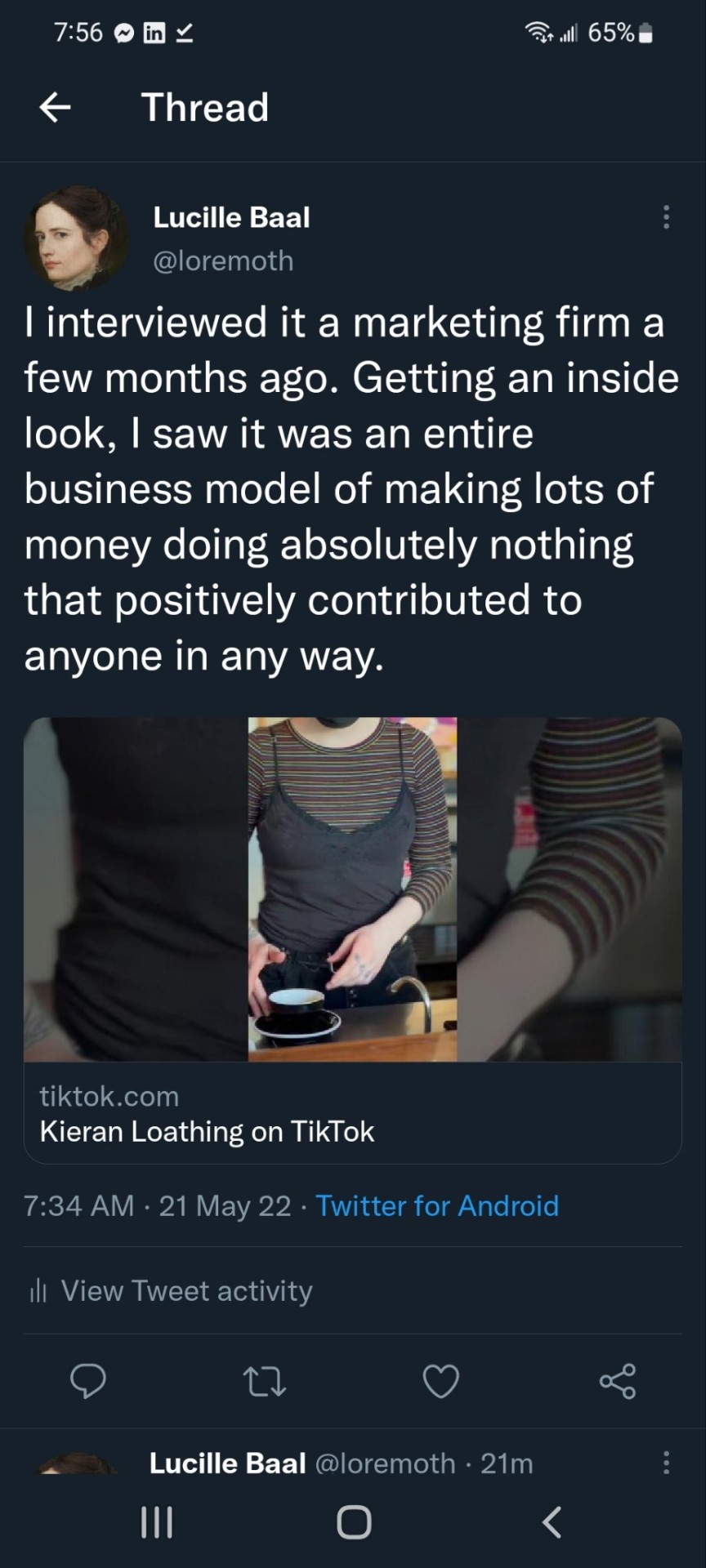
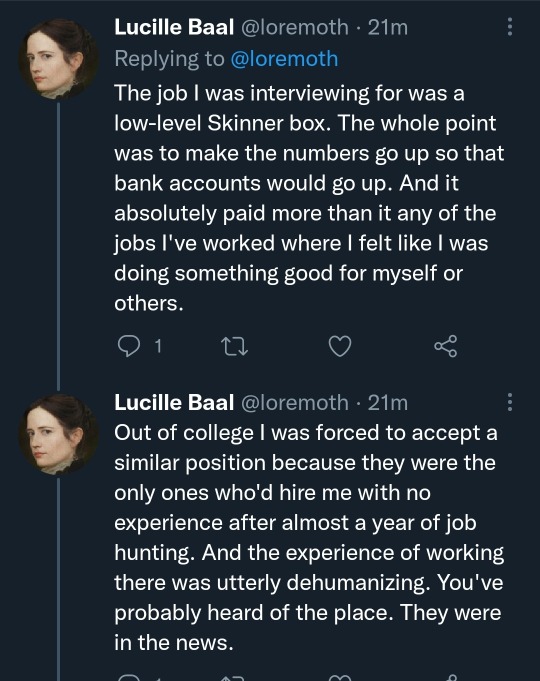
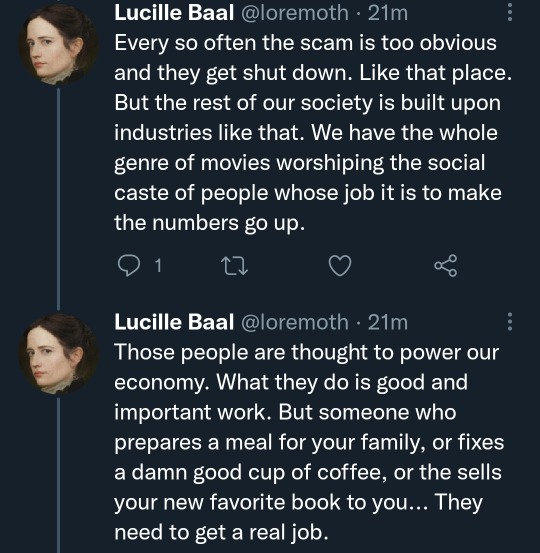
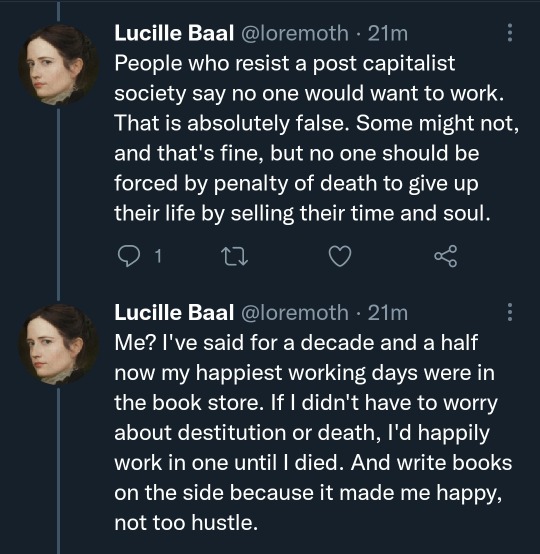

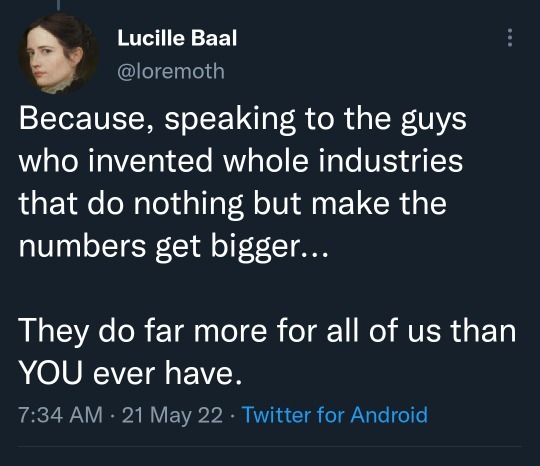
#work#workplace#capitalism#leftist#socialism#social history#social issues#social injustice#anarcho syndicalism#anarchocommunism#economy#economics#antiwork#anti work#r/antiwork#tiktok thoughts#bookstore#jobsearch
151 notes
·
View notes
Text
I have some heavy films on my watchlist but I feel like I can't watch anything too heavy right now
#I am once again being paralyzed in my film watching by the ReAl LiFe EvEnTs happening in the world#it really feels like we're entering some new doom era of the world history#and I know I'm privileged to be living in a peaceful country#that sits in the center of europe#and so it's unlikely these events will affect us directly#and instead we will always be mostly affected economically#but my heart cannot help but cry for all the unnecessary injustice and violence and death happening in the world#ordinary people dying because some rich fucks decided to play with their gun toys
7 notes
·
View notes
Text
Mexico's child marriage ban is a start, but forced marriages continue, especially in indigenous communities. This practice robs girls of childhood, education, and health. Laws, education, and economic empowerment are critical in combating this injustice rooted in gender inequality.
#mexico#mexicanist#child marriage#child abuse#forced marriages#forced marriage#indigenous communities#indigenous#childhood#economic empowerment#injustice#gender inequality
5 notes
·
View notes
Text
so sick of the 'how dare you' attitude people give me for just existing
#personal#who am I to talk to YOU this way? who tf are YOU to talk to ME this way#so I always have to prove myself while people who were born in the right area code or self-concept get to have a base level of credibility#hermeneutical gap#mansplaining#epistemic injustice#feminism#how dare you think you're smart#how dare you think you deserve respect#how dare you think you're pretty#how dare you NOT think you're fat#how dare you think you deserve to be here#how dare you have feelings#how dare you be happy with who you are#doesn't matter that I have an master's degree bc everyone knows more than I do about my field of study!🤡📈#sorry i'm not minimizing myself for you!#social justice#economic justice#feminist
5 notes
·
View notes
Text
He said it was all part of the pattern of economics - economic injustice.
“You take a young white boy. He can go through school and college with a real incentive. He knows he can make good money in any profession when he gets out. But can a Negro - in the South? No, I’ve seen many make brilliant grades in college. And yet when they come home in the summers to earn a little money, they have to do the most menial work. And even when they graduate it’s a long hard pull. Most take postal jobs, or preaching and teaching jobs. This is the cream. What about the others, Mr. Griffin? A man knows no matter how hard he works, he’s never going to quite manage … taxes and prices eat up more than he can earn. He can’t see how he’ll ever have a wife and children. The economic structure just doesn’t permit it unless he’s prepared to live down in poverty and have his wife work too. That’s part of it. Our people aren’t educated because they either can’t afford it or else they know education won’t earn the jobs it would a white man. Any kind of family life, any decent standard of living seems impossible from the outset. So a lot of them, without even understanding the cause, just give up. They take what they can - mostly in pleasure, and they make the grand gesture, the wild gesture, because what have they got to lose if they do die in a car wreck or a knife fight or something else equally stupid?”
As we drove several miles down a lane into the forest, he told me he was a sawmill worker and never made quite enough to get out from under his debts. Always, when he took his check to the store, he owed a little more than the check could cover. He said it was the same for everyone else; and indeed I have seen the pattern throughout my travels. Part of the Southern white’s strategy is to get the Negro in debt and keep him there.
0 notes
Text
You ever just have a week where you're made, once again, painfully aware of how much suffering there is and how little you can do to fix it???
#im not gonna give details. but my heart is breaking more than usual#and theres SO little i can do#im useless. i feel so useless#and its not even abt what i feel its about what i can do#and i can do nothing. im untalented. so tired from work that i cant do anytbing else#plus its not like im near anywhere that i could frequently volunteer at#there is so much injustice. esp economic injustice. these are children and the elderly#and im too soft for this all. im weeping. im going to drink tonight and hope to forget#and. ofc. i told my doc my ganglion cyst wasnt bothering me on Monday#today???? PAIN ALL DAY#and so i gotta call back like a dum dum and be like..jk. it's bad. can u send me a referral#its. its so much#i dont have to complete the work but neither can i abandon it#but what is the work. what can i do. im lost without answers
10 notes
·
View notes
Text
Sharing Advocacies
Social, political, and economic inequality have always been present into this world full of madness. Social and political identity conflicts stemming from unjustified prejudice, societal oppression, and senseless violence are still prevalent not just in our country but the whole world. For AGF #8, each and everyone of the group members denoted some of the socio-economic issue that our world is facing right now. Below are some of socio-economic issues that each members answered in relation to the political theories that we learned about Karl Marx and Friedrich Engels:
Racism

One of the many socio-economic issues that have persisted from the days of the industrial revolution up until today is racism. The Australian Human Rights Commission defines racism as “the process by which systems and policies, actions and attitudes create inequitable opportunities and outcomes for people based on race.” We cannot deny that racism was a prevalent issue in many parts of the world two centuries ago. Today, even in “post-racial” nations, minority groups still suffer from the consequences of racist attitudes and policies. Recent movements like #BlackLivesMatter and #StopAsianHate serve as proof that racism is still, unfortunately, rampant today.
Overwork, Less Pay

For Adam Smith, specialization meant laborers could be more efficient in their work. Marx critiques this and claims that such specialization causes alienation. Because profit is capitalism’s ulterior goal, laborers become competitive rather than sociable and focus on production rather than passion. This is sadly true until today. With inflation and the economic state of the country worsening, many Filipino laborers feel desperate. Having to think of the expenses, and their dependencies, they no longer work to fulfill their own fulfillment but rather for their own survival instead. What’s even worse is that while the cost of living increases, this is not necessarily true for the wage of our laborers.
Unfair Treatment for Women/ Misogyny

Women are inherently exploited even in industrial times which still perpetuates today. As women started to enter the work force, they are now subjected to more work: domestic and capitalist work, which deprives them of their own rights. Moreover, because of such a capitalist system, the wages given to them are not livable, thus, turning into prostitution. Because of this effect, applying the Marxist conditions, prostitution is a social phenomenon [1]. If only livable wages are possible for women, then poverty and prostitution would stop so that women to be much less dependent on men.
Since the times of steam-punk engines, women and their rights have always been limited, if not removed. As this is of known fact, many movements and advocacies have been trying to let the voices be heard and understood, yet no true and just change will push through unless ALL believe in what is rightful and what is good.
It is safe to say that the socioeconomic status of women has improved over the years compared to the days of the industrial revolution. In most countries, they can now vote, study, earn their keep, and lead their nation. Despite all of these improvements, there are still a lot of issues that need to be addressed for us to say that men and women are equal in status. I saw a video on Tiktok where the leadership skills of women are still a subject of debate. Even though the other side presents facts and credible research that proves that women are as capable leaders as men, the opposing side still disagrees. This thinking might be one of the reasons why women are still underrepresented in senior positions in companies, while overrepresented in low-paying jobs.
Exploitation

Massive exploitation and unfair work practices are still being done, leaving the poor much poorer. Of course, in the birth of industrialization, the rich will still be able to get by and, more so, expand their wealth, while the working class is much more wounded, creating a wider gap between the two. However, applying Marx and Engels proposed solution of class war, violence, and social revolution in this present situation I believe is still highly impossible. Alternatives are being done through strikes of the working class although massive reforms in the government and proper representation without corruption must be done to address the matter.
Environmental Problems
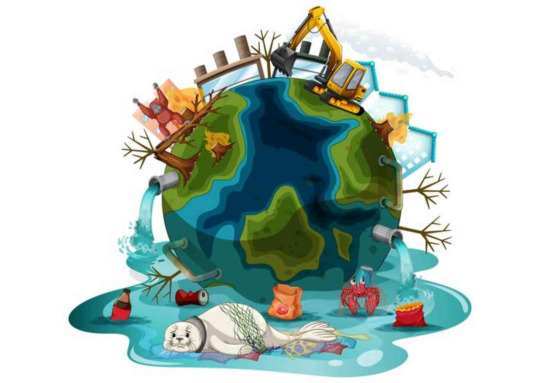
One socio-economic issue that arises after industrialization is environmental issues like pollution and abusive acquisition of natural resources. This issue will be very alarming if it continues to exist in the future because pollution can decrease the quality of life of creatures we use as part of raw materials, such as marine life. Moreover, suppose this issue continues to exist. In that case, we may experience scarcity, leading to other socio-economic problems like famine, extreme inflation, and a decreased life expectancy rate.
Industrialization
Industrialization is a wonderful period for humanity. It aroused machinery and allowed technologies to further, and it gave opportunities to people. However, it is quite a brutal time for disabled persons; who can be deemed as capable to do work but contractors won't hire them for there will be work delays.
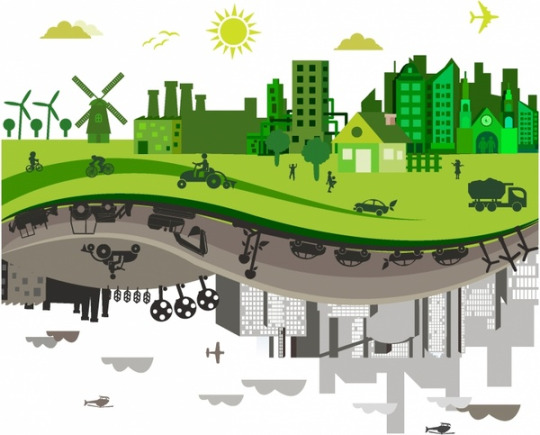
Hence, although other socio-economic issues are surrounding industrialization, excluding and not giving physically disabled persons the chance to prove themselves is heartbreaking. For their disabilities does not disable their capabilities. Sadly, this predicament is still quite eminent up to this day.
During the industrial revolution, cities grew, and people flocked into the cities but there wasn’t enough housing for them. As a result, many of them resorted to living in small places lacking ventilation and sanitation. This made them susceptible to infectious diseases. This is still observed today as residents from rural areas go to the greater metro to look for opportunities. However, they are confronted by below minimum wage and high cost of living. Consequently, most resort to living in informal settlements. Their unlivable wage hinders them from improving their quality of life, making them prisoners of the capitalist system.
Child Labor
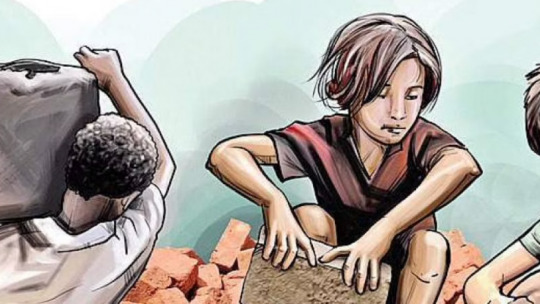
Child labor is still practiced today with approximately 160 million children ages 5 to 17 are working in jobs that deprive them of their childhood and schooling. s. By definition, this is a violation of both child protection and child rights.
Corruption
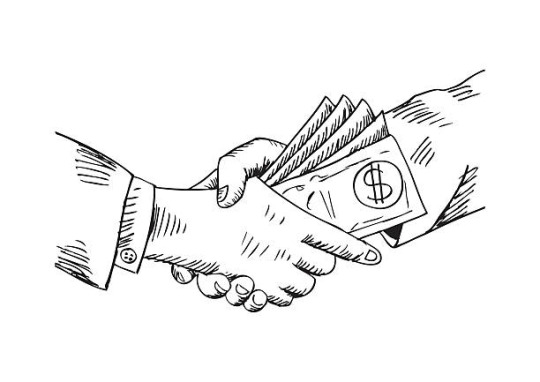
Corruption is a prominent socio-economic issue that still exists today; perhaps it is even worse now than it was before. There are many powerful elites who take advantage of the system, especially politicians who abuse their position for personal gain. More often than not, these instances of corruption come at the expense of other people. In his works, Marx also heavily criticized the bourgeoisie (elites), calling them out for their exploitation of the proletariat. There is clearly some parallelism between the abuse of past bourgeoisie, and the current political leaders.
War on Drugs

Over 12,000 Filipinos have died as a result of Rodrigo Duterte's "war on drugs" since starting his administration on June 30, 2016, and most of them are for the urban poor. Both morally and legally, it is wrong. It leads to state-sanctioned murder and causes severe and widespread human rights violations. It furthers these issues while severely undermining the moral structure and rule of law in the Philippines, making it ineffective in addressing the challenges and damages that the illegal drug use/ trade represent to society.
In conclusion, establishing institutions of fair governance, such as ethical law enforcement and justice, is necessary to address social injustices. The executive branch and legislature both need to be held accountable. Sometimes, these actions entail changing state institutions or state constitutions. Also, being accepting is the most essential step in addressing social injustice. Respect for others and an openness to new views that differ from our own are two characteristics of acceptance. Admitting there are issues and being prepared to deal with them are also parts of acceptance. These issues are frequently brought on by a lack or reluctance to learn about the opposing viewpoint. Instead of having a discussion, it descends into a debate about individual viewpoints, leaving the real issue unresolved. We must accept their existence if we are to effectively address the issues.
Most importantly, though, is that we must learn to make some significant adjustments. Cultures don't change overnight; adjustment takes time. We learn to accept our own uniqueness by accepting the diversity of others.
Social injustice will reduce and eventually vanish when people can come together to listen, educate, and accept one another. We'll use the chance to encourage children to concentrate on the reality that we are more alike than different rather than reprimanding and giving them insults. Our differences give us strength. Listening helps us grasp the distinctions between people, which in turn teaches kindness to the next generation and teaches us to accept people as they are.
#agf 8#sharing advocacies#social science#social injustices#socio-economic crisis#socio-political issues#platitos
3 notes
·
View notes
Text
I see this attitude from a lot of people nowadays "Why should I have to pay money just to live? The basic necessities should be free!"
Let me tell you why. The answer is efficiency and sustainability. Basic necessities cost resources to produce, food, housing, clothing, it takes labor, material costs, energy, and other resources to produce these things, and it also takes resources to get these things to the people who need them. And it takes societal structures, businesses, organizations, infrastructures, to do it. And some methods of production and distribution are more efficient than others.
When people have limited money, and have to buy basic necessities, they shop around for the lowest price and for deals. And the act of doing this, helps to select for more efficient ways of producing and distributing goods. It also creates incentives to preserve things, like keeping clothing or equipment longer instead of just throwing it out. All of these things create incentives for protecting the environment too, because things that cost more to make often are using more energy or material resources that have negative environmental impact.
When people don't have enough money to buy basic necessities, instead of saying that the problem is that the necessities cost money, you could say that the problem is that they don't have money. Money is power to buy things, and the problem is that some people are so disempowered that they cannot even get their basic needs met.
Solutions like UBI or various social welfare programs address this by simply giving people money regularly.
I think this is often a better solution than simply giving people resources for free. If something is free, people will be more likely waste it, or to take more than they need. This makes the program more expensive than if people bought only what they needed. Someone is still paying for those free things, and if it's funded by a government grant, the whole supply chain of producing and distributing it probably isn't going to be as efficient. So even if no one took more free handouts than they needed, it still would be more expensive than simply giving people money and allowing people to shop around for deals.
Note also that the existence of ultra-rich people undermines the efficiency created by markets and the money system. If someone is rich past a certain point, they become insensitive to the cost of most goods, and they end up buying things for whatever prices they are available at. As a result they often end up buying things that took incredible amounts of resources to produce, and they thus end up having a disrpoportionate environmental impact too. This is why we see all this stuff about how the richest people are responsible for the most carbon emissions and pollution. It's also why you have problems like billionaires buying up tons of properties in London and driving up the cost of living, shaping the whole housing market so that developers build luxury housing instead of affordable housing.
The problem with our world isn't that money exists or that it rules the economy, the problem is simply that the money has been ridiculously concentrated in the hands of a tiny portion of people, and that the economic system and tax system and laws are designed such that it stays that way. Some people have too much money and others have too little and it creates problems on both ends. The solution isn't to eliminate money, it's to eliminate the regressive aspects of our tax code, laws, and economic system.
If there were only modest wealth disparities between people, all people had enough money to comfortably buy basic necessities, and no people had so much wealth as to be insensitive to cost, it wouldn't be a grave injustice that you need to pay for these things. It would just be part of the system that helps society to run more efficiently. And I think that would be a much better society to live in than one where we try to (centrally or decentrally) coordinate how to care for people without money.
#economics#markets#free market#efficiency#sustainability#ubi#injustice#capitalism#wealth disparity#wealth inequality#inequality#poverty#the rich
4 notes
·
View notes
Text
The environment that had forced the trailers’ occupants from their homes in 1942 hadn’t disappeared, either. Frank Kawana was 12 when his family moved into the trailer camp in El Segundo, which sat near North American Aviation’s B-25 bomber plant. One day, as the 5 o’clock whistle blew, Kawana and his father were stuck standing at an intersection while the workers drove off.
“It was probably about 10 minutes but it seemed like 10 hours,” Kawana recalled in 2011 to Densho, a nonprofit preserving the history of Japanese-American incarceration. “Every other car would roll down the window” and they yelled “‘Goddamn Japs! Get the hell out of here!’” His father grabbed his hand. “A little bit of him and a little bit of me died that day,” Mr. Kawana said.
When it shuttered the internment camps in 1945, the W.R.A. liquidated not only the barracks but also the cots and kitchen equipment from the camps. Some items even found their way to the West Coast’s makeshift housing; it’s not impossible to imagine a scenario where a trailer or hostel resident pulled the sheets up at night in the same bed they where they had slept the previous three years. “Because of poverty and restrictive covenants and hostility and fear, Japanese-Americans were forced to take whatever housing they could get,” said Greg Robinson, the author of “After Camp: Portraits in Midcentury Japanese American Life and Politics.”
The public sentiment that had driven the decision to remove Japanese-Americans from the West Coast in 1942 hadn’t miraculously disappeared. Los Angeles County refused to hire Japanese-Americans until 90 days after the end of the war, and private-sector discrimination led to former shop owners becoming domestic servants, Robinson said. The state’s produce industry, the lifeblood of many Japanese-Americans before the war, shut out the returning families. The community didn’t fully recover financially from incarceration until the early 1960s, Robinson said, missing out on 15 years of postwar American prosperity.
All of this led to an economic hollowing out of the community. In 1941, only 23 of Los Angeles County’s 36,000 residents of Japanese descent received public assistance. By January 1946 that number had climbed to 937.
— For Japanese-Americans, Housing Injustices Outlived Internment
#bradford pearson#for japanese-americans housing injustices outlived internment#history#racism#employment#economics#poverty#ww2#internment of japanese americans#usa#asian americans#japanese americans#los angeles#little tokyo#war relocation authority
2 notes
·
View notes